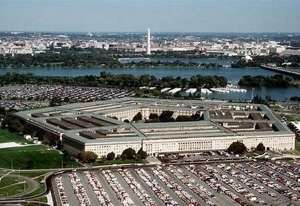On the last monetary policy meeting, the NBR came up with a surprise by which it wants to convince us that it still holds a relevant position in the mechanism of an economy which is incapable of overcoming the recession.
Governor Isărescu has made a preliminary announcement concerning the initiation of a new cycle of quantitative easing, which is intended to, at least theoretically, restart the engines of the economy by making lending cheaper. But aren't cheap loans, both in terms of the interest rates and the ease of borrowing, that have led us to the current economic situation?
In the latest inflation report, the NBR has cut the inflation forecast for 2013 to 3.2%, down from 3.5%, in order to justify the evolution of the key policy rate.
Let's assume that things are different after so many years of crisis and that an overdose can still stimulate the patient, even though far more famous "doctors" and far more reputable "hospitals" failed to do the same thing. Even given this vagarious hypothesis, doubts remain concerning the necessity and the timing of the preliminary announcement.
Once, prior to the beginning of the crisis, there used to be plenty of debates concerning the beneficial effects of the monetary policy surprises, such as the unexpected or greater than expected cuts of the policy rate.
If the effect of the surprise is that beneficial, why didn't the Romanian National Bank keep the announcement under lock and key until the right time? Maybe the answer should be sought in the reaction of the benchmark yields of government bonds. They have collapsed in the last day of the past week, and the trend picked up speed in the following days (see chart).
What does this drop in yields mean, aside from the reduction of the financing costs for the state? An increase in the price of the government bonds, which brings an essential contribution to the increase of the profitability of the banking system, amid the increase in the overdue loans. Furthermore, this increase in profitability comes at zero risk, because the regulations of the NBR consider that no additional capital is required for supporting the exposure to the bonds issued by the Romanian government, even though the sovereign rating is far from AAA.
According to data from the Credit Risk Central, in March 2013, the overdue loans in the banking system increased with an annual rate of 33.5%, to 29.5 billion lei, while the total amounts owed increased 0.73%, to about 261 billion. Since demand for loans in the private sector is very low, which is not just due to the borrowing costs, which means banks only see demand from the state.
After the cut of the interest rate by the ECB failed to thrill the markets, Mario Draghi tried to up the ante. Bloomberg writes that the chairman of the ECB surprised the markets by announcing that the bank is "open to an unconventional stimulus tactic: force lending by taxing deposits opened with the ECB by commercial banks".
What does the NBR do? It raises the interest rate for the deposit facility to 2.25%, from 1.25%, and cuts the interest for the lending facility to 8.25%, from its previous level of 9.25%.
In an ECB study concerning the financing of SMEs, it is stated that the main problem is not the cost of borrowing, but rather low demand for loans, and "not even the most important institution of the Eurozone can restart lending and stimulate economic growth on its own", according to an article by Bloomberg.
Under these circumstances, the beginning of a new round of quantitative easing will only bring benefits to the domestic and foreign creditors of the state, with no positive effects on lending to the real economy. Furthermore, not even the interest rates for deposits will be significantly affected (author's note: they are the first to get cut following a reduction of the policy rate), because the loan to deposits ratio at the level of the banking system is about 120%, which reflects a high need for financing, which can not be easily offset by attracting foreign sources. At any rate, the interest rates paid on the deposits of the population, are already negative, as they are far below the official inflation rate.
Nevertheless, let's assume that the NBR moves to aggressively cutting the policy rate. How far can it go? Is an interest rate of 0.05% like in the Czech Republic enough?
No, that isn't a misprint. In November 2012, the Czech central bank cut the policy rate to 0.05%, from 0.25% on the previous month and 0.5% in September 2012. The policy rate was kept at 0.75% for two years, between May 2010 and May 2012.
The real economy, focused predominantly on exports, it did not respond to the monetary stimulus and entered recession in 2012. The reduction of the financing costs was only significantly noticed at the level of government bonds, which saw their yield reach 1.16% in April 2013, for a 10-year maturity.
For new term deposits of households, the interest rate fell to 1.5%, the interest for consumer loans was almost 15%, and the interest rate for real estate loans was 3.54%. The loans granted to non-financial companies had an interest rate between 2.3% and 5.2% depending on the maturity and the amount of the loan.
The reduction of the financing costs for companies did not prevent the steep drop of the industrial output since the beginning of the year. The latest data, of March 2013, shows an annual decline of 6%, and for Q1 2013, the annual drop of the industrial output was 5.4%, amid a 6.6% drop in order.
The experience of the Czech Republic shows us that the only concrete result of the reduction of the monetary interest rate close to zero is financial repression, in other words the redirection of the funds towards lending to the government, to the detriment of the private sector, a redirection which would not be possible in a market that operates normally.
The consequences of manipulating the policy rate to benefit the government policies leads to the heavy undermining of the savings of the population and of the process of formation of the Romanian private equity.
That seems to be precisely the goal pursued by the NBR. By doing quantitative easing, including by cutting the policy rate, the NBR seems to commit "soldiers" in the global currency war, in other words in a fierce competition for the devaluation of national currencies, in hopes that this will stimulate exports and economic growth.
Unfortunately, this not a solution. Exports increase sustainably only if the economy constantly produces quality goods, not as a result of the depreciation of the currency. Furthermore, James Rickards, the author of the book "Currency Wars", considers that the only winners of that kind of "conflicts" are those who don't get involved in them.
By announcing a new cycle of policy rate cuts, the NBR shows that it doesn't care or it doesn't understand the mechanisms of economic restructuring. The latter can not occur through the drafting of sophisticated government programs nor through the attempt to maintain the status-quo of a period dominated by speculative bubbles, caused by the irresponsible expansion of lending.
It has therefore chosen the easiest path, in terms of taking responsibility for macroeconomic policies: we are going off, together with our "allies", to the world currency war, even though we are bringing a knife to a gunfight.
























































